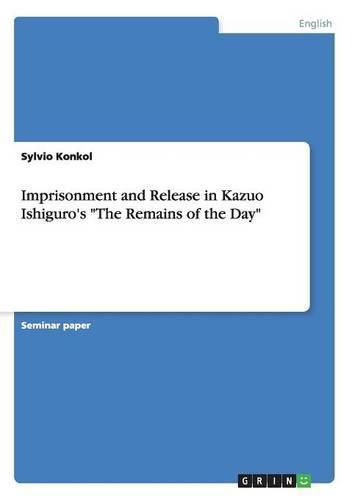Readings Newsletter
Become a Readings Member to make your shopping experience even easier.
Sign in or sign up for free!
You’re not far away from qualifying for FREE standard shipping within Australia
You’ve qualified for FREE standard shipping within Australia
The cart is loading…






Seminar paper from the year 2013 in the subject English Language and Literature Studies - Literature, grade: 1,0, University of Leipzig (Institut fur Anglistik), language: English, abstract: This paper examines the themes of imprisonment and release in Kazuo Ishiguro’s 1989 novel The Remains of the Day. It discusses the relation between the two main narratives as well as the peculiarities of the language of Stevens, the butler at Darlington Hall, who is the protagonist and first person narrator. The author examines in what ways Stevens’ demeanour resembles that of a man to whom has been granted release following a life spent in prison. The nature of this prison is investigated as well as whether Stevens is conscious of his imprisonment and if his journey through England provides him an opportunity for escape. The question of Stevens’ self-awareness is an important one for this paper and draws upon an essay by Meghan Marie Hammond about Stevens’ role as an author.
$9.00 standard shipping within Australia
FREE standard shipping within Australia for orders over $100.00
Express & International shipping calculated at checkout
Seminar paper from the year 2013 in the subject English Language and Literature Studies - Literature, grade: 1,0, University of Leipzig (Institut fur Anglistik), language: English, abstract: This paper examines the themes of imprisonment and release in Kazuo Ishiguro’s 1989 novel The Remains of the Day. It discusses the relation between the two main narratives as well as the peculiarities of the language of Stevens, the butler at Darlington Hall, who is the protagonist and first person narrator. The author examines in what ways Stevens’ demeanour resembles that of a man to whom has been granted release following a life spent in prison. The nature of this prison is investigated as well as whether Stevens is conscious of his imprisonment and if his journey through England provides him an opportunity for escape. The question of Stevens’ self-awareness is an important one for this paper and draws upon an essay by Meghan Marie Hammond about Stevens’ role as an author.